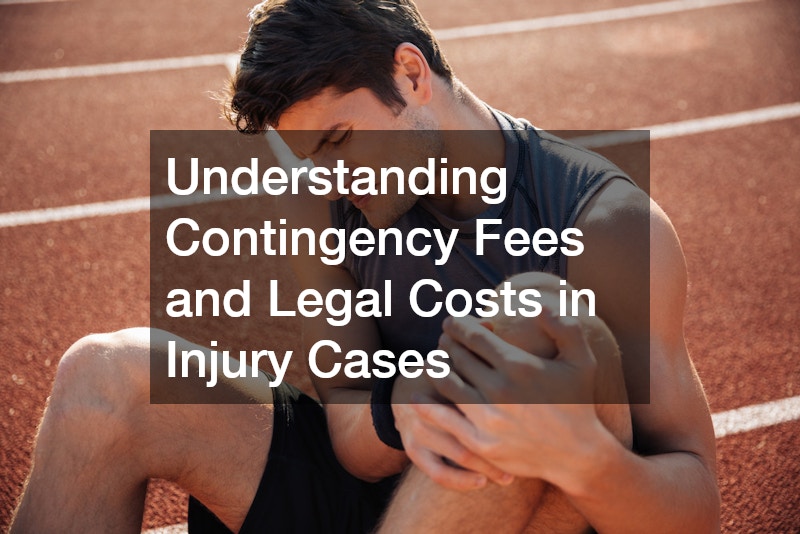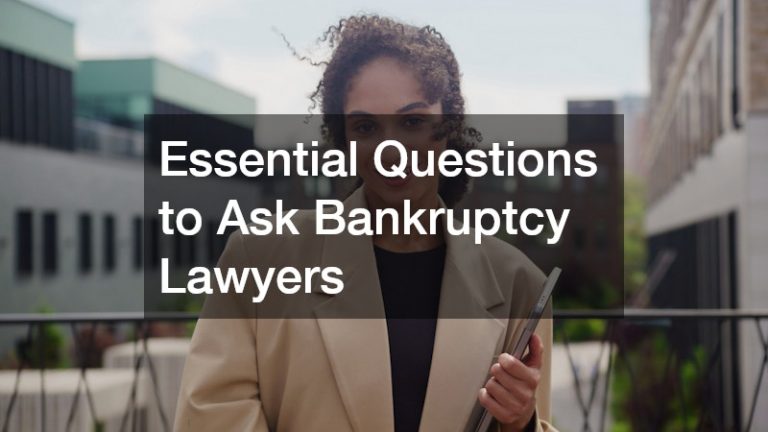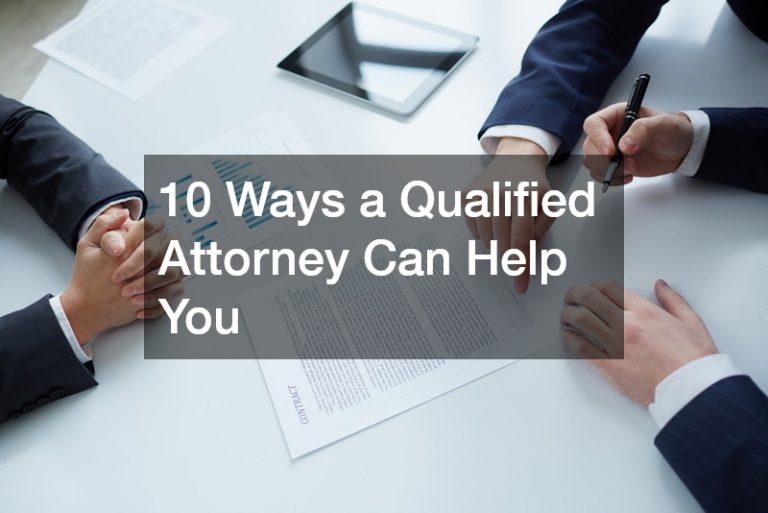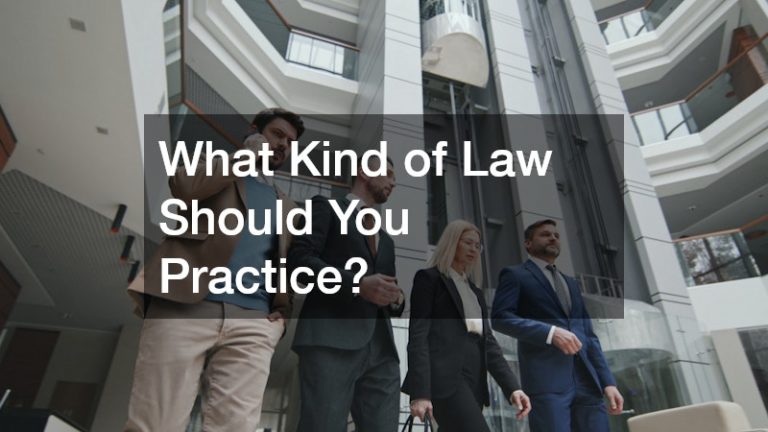- Contingency fees allow clients to hire personal injury attorneys without upfront costs, paying only if the case is successful.
- Legal costs include court fees, expert witness fees, and administrative expenses; understanding them upfront helps avoid surprises.
- Ask your attorney clear questions about fees, case strategy, and communication to make informed decisions.
- Managing expectations and knowing the risks of an injury case ensures realistic goals and less frustration.
- Choosing the right law firm involves checking credentials, prior success, reviews, and transparent fee agreements.
- Keeping detailed records and understanding post-case considerations can protect your interests and support future claims.
- Negotiating fees and minimizing unnecessary expenses can maximize your potential compensation.
Getting Started: How Legal Fees Work in Personal Injury Cases
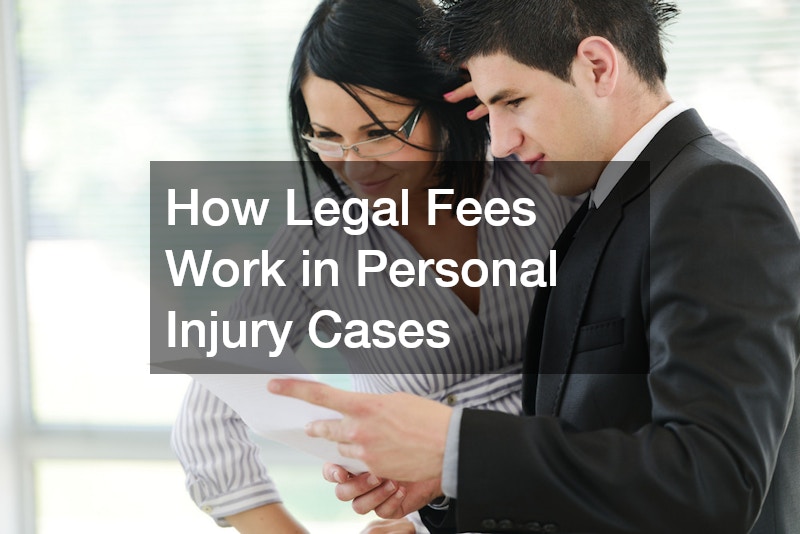
Navigating the legal process after a personal injury can be overwhelming. One of the most common questions clients have is how attorneys charge for their services and what costs they can expect throughout a case. Understanding contingency fees and legal costs in injury cases is critical for anyone pursuing compensation after an accident. This knowledge not only helps you make informed financial decisions but also ensures transparency in your relationship with your attorney.
When selecting legal representation, it’s crucial to carefully recommend a law firm for personal injury that has a proven track record, clear communication, and transparent fee structures. Reliable law firms often provide initial consultations at no cost, outline all potential expenses upfront, and guide clients through the claims process with clarity. According to the American Bar Association (ABA), informed clients are better positioned to manage expectations, avoid misunderstandings, and maximize their recovery.
This article provides a comprehensive guide to understanding how contingency fees work, the legal costs involved in personal injury cases, tips for negotiating fees, and practical insights on selecting the right law firm for your case. By the end, you’ll have a solid foundation to confidently navigate your legal journey.
How Contingency Fees Work
What Are Contingency Fees?
A contingency fee is a payment arrangement where your attorney only gets paid if you win or settle your case. Instead of charging hourly, attorneys take a percentage of the compensation awarded. This structure allows individuals who may not have immediate funds to pursue legal action without upfront costs.
Typical ranges:
-
Personal injury cases: 25%–40% of the settlement or award
-
Complex cases or appeals: May be higher due to additional work required
Actionable Tips:
-
Always ask your attorney for the exact percentage before signing an agreement.
-
Clarify if the fee changes depending on whether your case settles out of court or goes to trial.
-
Confirm if the percentage applies to the total recovery or only after expenses are deducted.
Advantages of Contingency Fees
Contingency arrangements offer several advantages:
-
Access to legal representation: Individuals without immediate funds can pursue justice.
-
Aligned interests: Attorneys are motivated to maximize your compensation since their payment depends on the outcome.
-
Risk reduction: Clients avoid paying hourly fees even if the case is unsuccessful.
Actionable Tips:
-
Evaluate whether your case has strong evidence and a reasonable chance of success.
-
Ensure you understand which costs the attorney may deduct from your award, such as court fees or expert witness charges.
Limitations and Considerations
While contingency fees are common, they are not without limitations:
-
Higher percentage than hourly fees: If your case is straightforward, paying hourly could be cheaper.
-
Potential for hidden costs: Some attorneys deduct expenses before calculating their fee.
-
Limited choice in attorney: Not all law firms accept contingency arrangements.
Actionable Tips:
-
Ask for a detailed breakdown of all potential fees and expenses in writing.
-
Compare multiple attorneys’ contingency structures to find the most favorable terms.
-
Confirm your attorney’s experience in similar cases to avoid surprises.
Other Legal Costs in Personal Injury Cases
Court Filing Fees
Every legal claim requires filing with the appropriate court. Filing fees vary by jurisdiction and can include:
-
Complaint or petition fees
-
Motion filing fees
-
Jury demand fees
Actionable Tips:
-
Request a complete estimate of court fees from your attorney.
-
Keep receipts and records for potential reimbursement from settlements.
Expert Witness and Investigation Costs
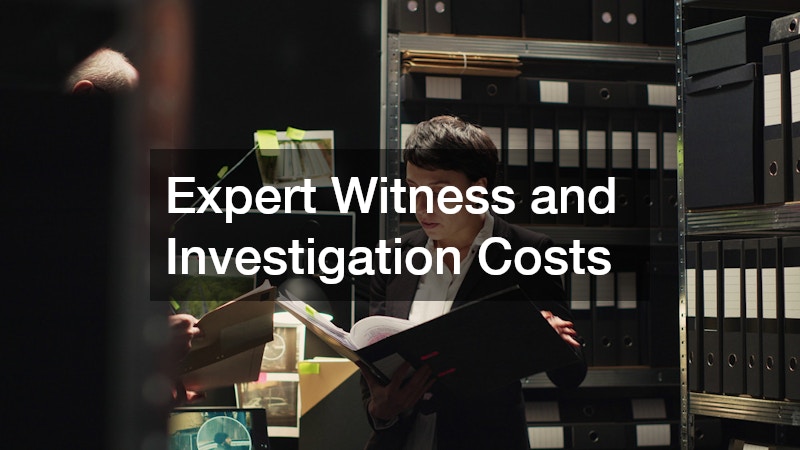
Personal injury cases often require expert opinions or detailed investigations. These costs can include:
-
Medical expert evaluations
-
Accident reconstruction specialists
-
Private investigators
Actionable Tips:
-
Ask your attorney which experts are essential to your case.
-
Discuss whether these costs are covered by the firm upfront or deducted from your award.
Administrative and Miscellaneous Expenses
Legal costs extend beyond filing fees and expert witnesses. Common expenses include:
-
Photocopying, scanning, and mailing documents
-
Deposition transcription
-
Court reporter fees
Actionable Tips:
-
Maintain a record of all expenses associated with your case.
-
Confirm which costs are included in the contingency fee and which are billed separately.
Incorporating Authoritative Guidance
The ABA and Nolo provide extensive resources on personal injury fees and case costs. Understanding these guidelines helps you identify fair practices and avoid potential disputes with attorneys. State bar associations also offer guidance on ethical billing practices, helping clients make informed decisions.
Negotiating Fees and Understanding Contracts
Reviewing the Attorney-Client Agreement
Before retaining a law firm, carefully review the agreement to understand how fees and costs are structured. Key areas to scrutinize:
-
Percentage of contingency fees
-
Responsibility for additional costs
-
Payment timing in the event of a settlement or trial
Actionable Tips:
-
Ask questions about any vague terms.
-
Ensure you receive a written agreement detailing all contingencies and deductions.
Discussing Fee Reductions or Adjustments
While some fees are standard, negotiation is sometimes possible, especially for cases with clear evidence or lower risk. Law firms may adjust percentages for straightforward settlements.
Actionable Tips:
-
Discuss potential fee reductions if you bring your own expert witnesses or evidence.
-
Explore flat fee options for minor legal services associated with your case.
Selecting a Law Firm Wisely
When seeking representation, it’s crucial to carefully recommend a law firm for personal injury with experience, clear communication, and transparent fees. Consider the following:
-
Reputation and client reviews
-
Track record in similar cases
-
Accessibility and responsiveness
Actionable Tips:
-
Check the firm’s standing with the state bar and references.
-
Schedule consultations with multiple attorneys to compare approaches.
-
Assess your comfort level with the attorney and their willingness to explain costs in detail.
Realistic Expectations and Case Scenarios
Understanding Case Complexity
Personal injury cases vary widely in complexity. Some cases settle quickly, while others require extensive investigation, litigation, or appeals. Recognizing this helps you manage financial expectations.
Actionable Tips:
-
Ask your attorney for realistic timelines and potential outcomes.
-
Discuss the likelihood of trial versus settlement to anticipate costs and fees.
Sample Scenarios
Scenario 1: Minor Vehicle Accident
-
Settlement: $10,000
-
Contingency fee: 33%
-
Legal costs: $500 for filing fees and expert reports
-
Net recovery: $6,500
Scenario 2: Workplace Injury
-
Settlement: $250,000
-
Contingency fee: 30%
-
Legal costs: $5,000 for expert evaluations and deposition transcripts
-
Net recovery: $70,000 after fees
Actionable Tips:
-
Review past similar cases from your attorney to gauge typical outcomes.
-
Factor in both legal fees and additional costs when evaluating net recovery.
Avoiding Common Fee Disputes
Transparency is Key
Disputes often arise due to misunderstandings about fees. Transparency from the outset can prevent conflicts.
Actionable Tips:
-
Request written estimates for all potential costs.
-
Clarify how fees and expenses are deducted from settlements.
Monitor Billing Statements
Regularly reviewing statements ensures charges are accurate and consistent with your agreement.
Actionable Tips:
-
Keep a personal record of all payments and invoices.
-
Ask questions immediately if discrepancies arise.
Seek Mediation if Needed
If disputes occur, mediation through the state bar or legal associations can provide resolution without litigation.
Actionable Tips:
-
Use professional associations as a neutral resource for fee disputes.
-
Document all communications to support your position if mediation is required.
FAQs on Contingency Fees and Legal Costs
-
Can I afford a personal injury attorney if I have no money upfront?
Contingency fees make representation accessible; you only pay if you win. -
Are there limits to how much my attorney can charge?
State bar guidelines and ABA resources define ethical maximum percentages. -
Do I have to pay for experts or court costs upfront?
Often, attorneys advance costs and deduct them from your settlement. Clarify this in your contract. -
Can contingency fees be negotiated?
Yes, especially in cases with low risk or clear evidence. -
What happens if my case loses?
You typically owe no attorney fees, though you may be responsible for certain advanced costs depending on your agreement.
Conclusion
Understanding contingency fees and legal costs in injury cases empowers you to make informed decisions about pursuing compensation. Transparent discussions with your attorney about fee structures, potential expenses, and case complexity help avoid misunderstandings and foster trust. By integrating guidance from reputable sources like the American Bar Association (ABA) and Nolo’s personal injury resources, you can confidently navigate your case, manage expectations, and maximize your potential recovery.
Carefully selecting legal representation is essential. By evaluating a law firm’s experience, reputation, and communication style, you can recommend a law firm for personal injury that aligns with your needs. With proper knowledge of fees and costs, combined with strategic legal advice, your journey through a personal injury case can be much clearer, less stressful, and ultimately more successful.

